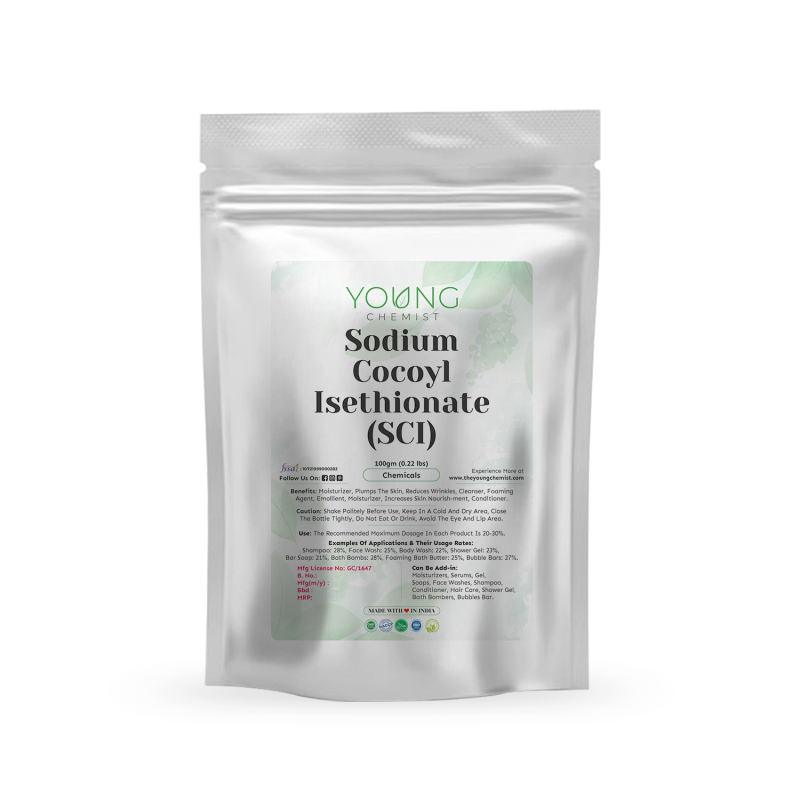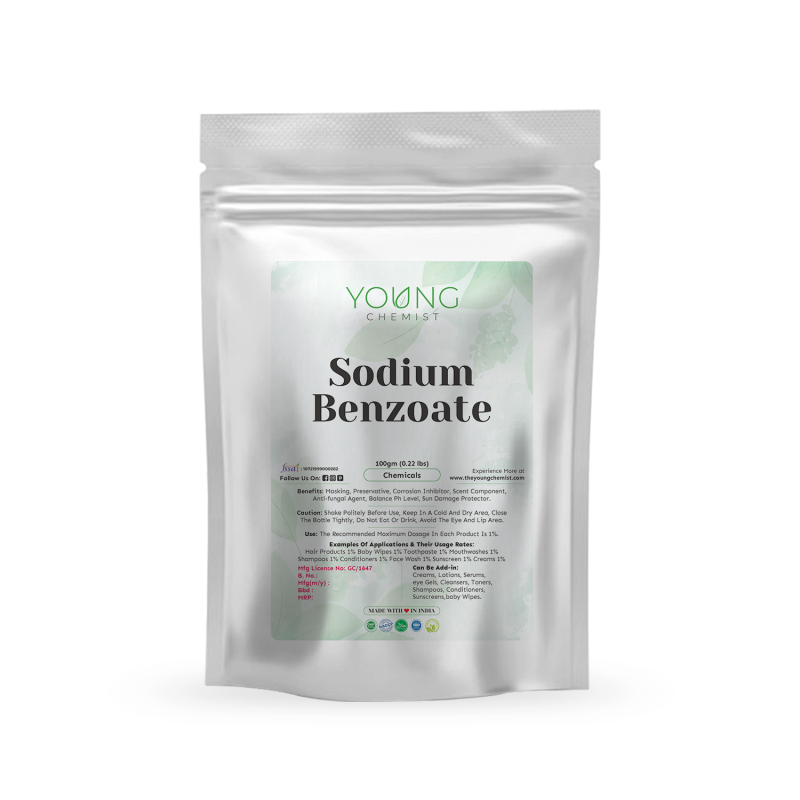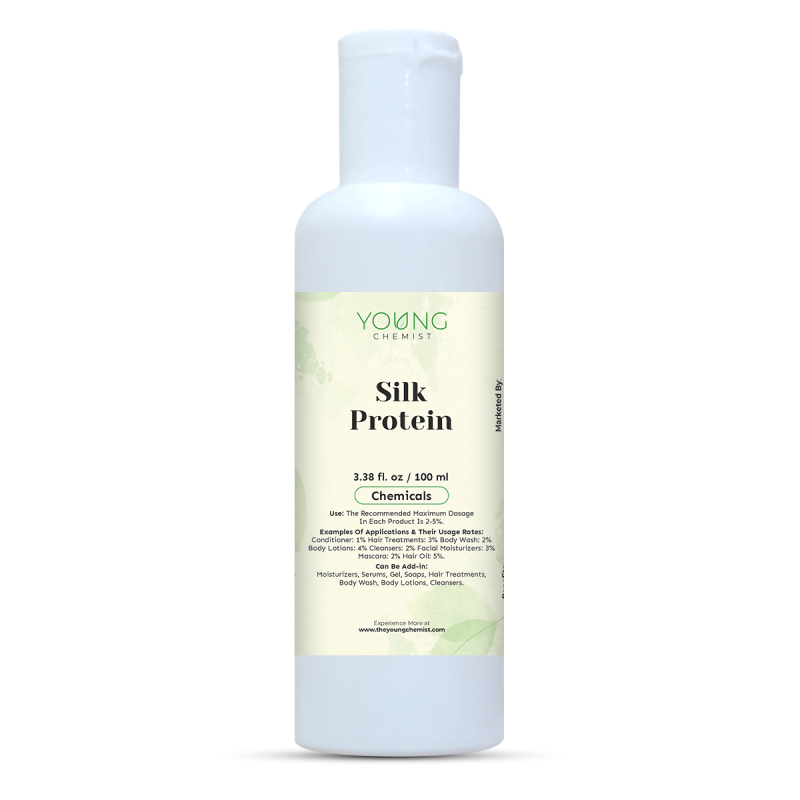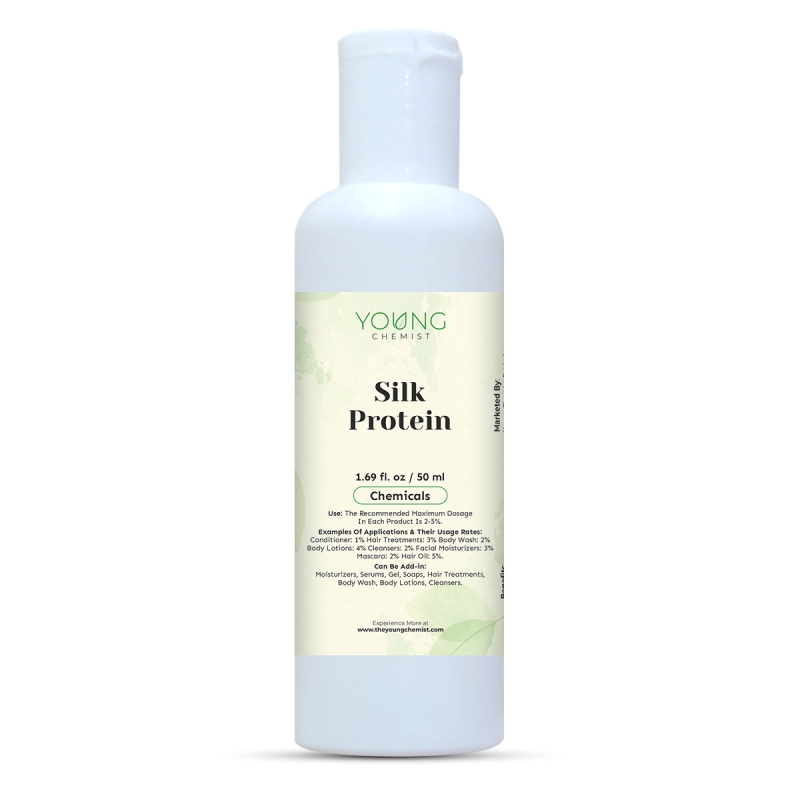-
No Item Added in Cart.
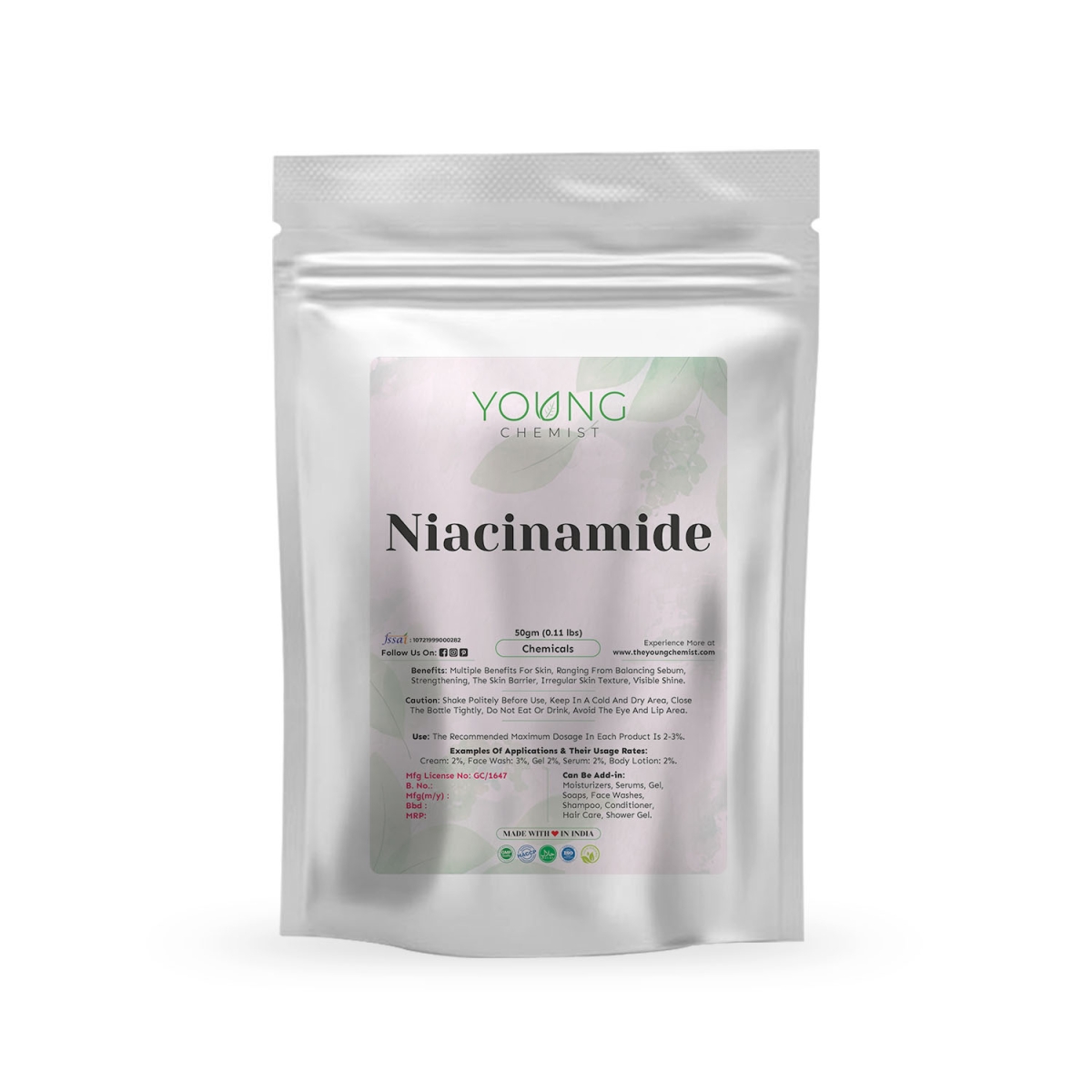
Niacinamide (Vitamin B3)
SKU: CC-AIA-NCNMD
Size

40 customers are viewing this product



Young Chemist Niacinamide, also known as Vitamin B3, is a cosmetic chemical widely used in skincare products due to its numerous benefits for the skin. Here is a description of niacinamide, its benefits, how to use it, and some cautions to keep in mind:
Niacinamide is a water-soluble vitamin that belongs to the B-complex group. It is a stable and non-irritating ingredient commonly found in skincare formulations. Niacinamide is known for its versatile properties and compatibility with various skin types, making it a popular choice in the cosmetics industry.
Niacinamide (Vitamin B3) is a multi-benefit skincare active loved for delivering a balanced glow, refined-looking pores, and a stronger-feeling moisture barrier. Gentle yet effective, our Niacinamide serums, toners, and creams help reduce the look of excess oil and shine, soften the appearance of dark spots and post-blemish marks, and calm visible redness for a smoother, more even-toned complexion. Lightweight textures absorb fast, layer cleanly under moisturizer and broad-spectrum SPF, and suit morning or evening routines across seasons.
Formulators and skincare fans choose Niacinamide because it plays well with favorites like hyaluronic acid, panthenol, zinc PCA, ceramides, peptides, and vitamin C derivatives, supporting long-lasting hydration and everyday resilience. With consistent use, skin looks clearer, feels comfortable, and maintains that fresh, healthy-looking radiance—ideal for oily, combination, and sensitive skin types.
Thoughtfully packaged to protect potency, our Vitamin B3 products are fragrance-light and pH-aware for dependable results. Whether you’re targeting T-zone shine, texture, or tone, Niacinamide offers a simple, beginner-friendly path to visible clarity without a complicated routine.
Niacinamide (Vitamin B3) for oil balance, pore appearance care, and barrier support, a modern essential that makes everyday skincare effortless.
| Title | Description |
|---|---|
| No specifications available. | |
Niacinamide can be found in various skincare products, including serums, moisturizers, creams, and toners. Follow the instructions on the product packaging for specific usage guidelines. In general, apply a small amount of the product containing niacinamide onto clean, dry skin and gently massage it in. It is advisable to use it twice daily, in the morning and evening, as part of your skincare routine.
Apply a 2–5% niacinamide serum to clean, dry skin AM and/or PM. Use 2–3 drops over face and neck after toner/essence; follow with moisturizer and SPF 30+ in the morning. Pair with hyaluronic acid for hydration and zinc PCA/ceramides for extra balance and barrier support. If using strong actives (retinoids, AHAs/BHAs, pure L-ascorbic acid), alternate routines or apply niacinamide at the opposite time of day. Patch test first; reduce frequency if tingling occurs. Suitable under makeup. Store tightly capped, away from heat and light. Consistent daily use helps improve oil control, tone, and pore visibility in 4–8 weeks.
- Enhances skin hydration: Niacinamide helps to improve the skin's natural moisturizing factors, resulting in enhanced hydration and preventing moisture loss from the skin.
- Brightens and evens out skin tone: Regular use of niacinamide can help reduce the appearance of dark spots, hyperpigmentation, and uneven skin tone, giving the skin a more radiant and even complexion.
- Minimizes the appearance of fine lines and wrinkles: Niacinamide has shown promising results in reducing the appearance of fine lines and wrinkles by stimulating collagen production and improving the skin's elasticity.
- Regulates sebum production: For individuals with oily or acne-prone skin, niacinamide can help regulate sebum production, reducing excessive oiliness and preventing clogged pores.
- Reduces redness and inflammation: Niacinamide possesses anti-inflammatory properties, making it effective in reducing redness, irritation, and inflammation associated with various skin conditions like acne, rosacea, and eczema.
Niacinamide (Vitamin B3) delivers a balanced, healthy-looking glow by improving barrier strength, reducing excess oil, and softening the look of pores. With consistent use, it helps fade the appearance of dark spots and post-blemish marks, evens tone, and calms visible redness for smoother texture. This gentle, multi-tasking active pairs well with hyaluronic acid, ceramides, zinc PCA, panthenol, peptides, and vitamin C derivatives, supporting long-lasting hydration and resilience. Lightweight and non-sticky, it layers easily under sunscreen and makeup—ideal for oily, combination, and sensitive skin. Choose niacinamide serum for daily oil control, pore appearance care, and a refined, luminous complexion.
While niacinamide is generally well-tolerated by most individuals, some precautions should be considered:
- Patch test: Before incorporating a new product containing niacinamide into your skincare routine, it is recommended to perform a patch test on a small area of skin to check for any adverse reactions or allergies.
- Sun protection: Niacinamide does not provide sun protection, so it is important to use sunscreen with adequate SPF after applying niacinamide-containing products, especially during the daytime.
- Interaction with other skincare ingredients: Niacinamide is generally compatible with a wide range of skincare ingredients. However, it is advisable to avoid combining niacinamide with products containing high concentrations of acidic ingredients like alpha-hydroxy acids (AHAs) or vitamin C, as they may reduce its effectiveness.
- Consultation with a dermatologist: If you have any specific skin concerns or conditions, or if you are unsure about using niacinamide, it is best to consult a dermatologist who can provide personalized advice and recommendations based on your skin type and needs.
Overall, niacinamide is a versatile cosmetic chemical that offers several benefits for the skin. By incorporating products containing niacinamide into your skincare routine, you can enjoy improved hydration, a more even skin tone, reduced signs of aging, regulated sebum production, and decreased redness and inflammation. Remember to follow the recommended usage guidelines and take necessary precautions for optimal results.

Aruma Kushwaha
Received the wrong item. Got some other compound instead of Niacinamide. My entire formulation was ruined. Very dangerous and extremely unacceptable.

sujeen killa
i have recieved the order
Product Questions
Niacinamide, also known as Vitamin B3, is a water-soluble vitamin that helps improve skin texture, reduce the appearance of pores, and even out skin tone. It also strengthens the skin barrier, which helps retain moisture and protect against environmental stressors.
Yes! Niacinamide is suitable for all skin types, including sensitive, oily, and acne-prone skin. Its soothing and anti-inflammatory properties make it a versatile ingredient that can benefit everyone.
You can use Niacinamide products daily, either in the morning or at night. It's gentle enough for everyday use and can be incorporated into your skincare routine after cleansing and before moisturizing.
Yes, Niacinamide pairs well with most skincare ingredients, including hyaluronic acid, peptides, and antioxidants. However, it's best to avoid using it with high concentrations of Vitamin C in the same routine to prevent any potential irritation.
Yes, Niacinamide can help reduce the appearance of acne and blemishes. It has anti-inflammatory properties that calm the skin and reduce redness, making it an excellent choice for those with acne-prone skin.
Results can vary depending on individual skin concerns, but many people start noticing improvements in skin texture and a reduction in redness within 2 to 4 weeks of consistent use.
Yes, Niacinamide is considered safe to use during pregnancy. It's a mild and non-irritating ingredient that can help manage common skin concerns during pregnancy, such as uneven skin tone and increased sensitivity.
Niacinamide is generally well-tolerated by most skin types, but some people may experience mild irritation, especially if they use high concentrations or combine it with other active ingredients. It's always a good idea to patch-test any new skincare product before applying it to your face.
Most skincare products contain Niacinamide concentrations between 2% and 10%. A concentration of around 5% is effective for most skin types and concerns without causing irritation.
Yes, Niacinamide has several anti-aging benefits. It helps improve skin elasticity, smooth fine lines and wrinkles, and boosts collagen production, making it an excellent addition to any anti-aging skincare routine.
Reviews (2)

Aruma Kushwaha
Received the wrong item. Got some other compound instead of Niacinamide. My entire formulation was ruined. Very dangerous and extremely unacceptable.

sujeen killa
i have recieved the order

